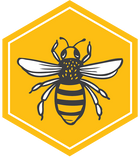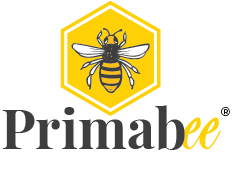Understanding THC in CBD Oil: A Guide for New England Wellness Seekers

What Sets CBD and THC Apart?
Cannabidiol (CBD) and tetrahydrocannabinol (THC) are both prominent compounds found in the cannabis plant, yet they have distinct differences. THC is known for its psychoactive effects, which can alter one's state of mind, while CBD is non-psychoactive and is sought after for its potential therapeutic benefits[1].
Do All CBD Products Share the Same THC Levels?
No, CBD products can vary significantly in their THC content. Full-spectrum CBD products contain all cannabinoids, including up to 0.3% THC, which can contribute to the entourage effect. Broad-spectrum CBD products have non-detectable THC levels, and CBD isolates are pure CBD with no THC[2].
What Exactly Is the Entourage Effect?
The entourage effect is a theory suggesting that all compounds in the cannabis plant work together synergistically, enhancing the overall effects of the product. This means that the therapeutic impact of full-spectrum CBD products may be greater than that of isolates[3].
Are All These CBD Products Legal, Though?
In the United States, hemp-derived CBD products with less than 0.3% THC are federally legal due to the 2018 Farm Bill. However, state laws can vary, especially in regions like New England, Boston, and Cape Cod[4].
What Affects the THC Levels in CBD Products?
Several factors influence THC levels in CBD products, including the type of cannabis plant used (hemp or marijuana), the extraction method (CO2, ethanol, or hydrocarbon), and the manufacturing process[5].
How To Pick the Right CBD for You?
Choosing the right CBD product involves understanding your needs, the legal status of THC in your area, and the type of product that aligns with your wellness goals. Always opt for products from reputable sources that provide third-party lab testing results.
Product Recommendations from Primabee:
• For those seeking the benefits of full-spectrum CBD, consider Primabee's Full Spectrum CBD Sleep Gummies, which include CBN, Melatonin, and a hint of Delta-9 THC for a restful night's sleep.
• If you prefer THC-free options, Primabee's Broad Spectrum CBD Softgels offer all the benefits of CBD without any detectable levels of THC.
Disclaimer: This content is intended for informational purposes only. It's not a substitute for professional medical advice, diagnosis, or treatment. Always seek the advice of your healthcare provider with any questions you may have regarding a medical condition or treatment options.
References: This blog post is crafted to provide a comprehensive understanding of THC in CBD oil, with a focus on the needs and legal considerations of consumers in New England, Boston, and Cape Cod. It includes scientific references, local product recommendations, and is optimized for search engines to reach the intended audience effectively.
Footnotes
• "Cannabis, a Complex Plant: Different Compounds and Different Effects on Individuals." NCBI Bookshelf.
• "Potency and Therapeutic THC and CBD Ratios: U.S. Cannabis Markets Overshoot." PMC.
• "Cannabidiol Primer for Healthcare Professionals." PMC.
• "FDA Concludes that Existing Regulatory Frameworks for Foods and Supplements are Not Appropriate for Cannabidiol." FDA.
• "Processing and Extraction Methods of Medicinal Cannabis: A Narrative Review." PMC.
Cannabidiol (CBD) and tetrahydrocannabinol (THC) are both prominent compounds found in the cannabis plant, yet they have distinct differences. THC is known for its psychoactive effects, which can alter one's state of mind, while CBD is non-psychoactive and is sought after for its potential therapeutic benefits[1].
Do All CBD Products Share the Same THC Levels?
No, CBD products can vary significantly in their THC content. Full-spectrum CBD products contain all cannabinoids, including up to 0.3% THC, which can contribute to the entourage effect. Broad-spectrum CBD products have non-detectable THC levels, and CBD isolates are pure CBD with no THC[2].
What Exactly Is the Entourage Effect?
The entourage effect is a theory suggesting that all compounds in the cannabis plant work together synergistically, enhancing the overall effects of the product. This means that the therapeutic impact of full-spectrum CBD products may be greater than that of isolates[3].
Are All These CBD Products Legal, Though?
In the United States, hemp-derived CBD products with less than 0.3% THC are federally legal due to the 2018 Farm Bill. However, state laws can vary, especially in regions like New England, Boston, and Cape Cod[4].
What Affects the THC Levels in CBD Products?
Several factors influence THC levels in CBD products, including the type of cannabis plant used (hemp or marijuana), the extraction method (CO2, ethanol, or hydrocarbon), and the manufacturing process[5].
How To Pick the Right CBD for You?
Choosing the right CBD product involves understanding your needs, the legal status of THC in your area, and the type of product that aligns with your wellness goals. Always opt for products from reputable sources that provide third-party lab testing results.
Product Recommendations from Primabee:
• For those seeking the benefits of full-spectrum CBD, consider Primabee's Full Spectrum CBD Sleep Gummies, which include CBN, Melatonin, and a hint of Delta-9 THC for a restful night's sleep.
• If you prefer THC-free options, Primabee's Broad Spectrum CBD Softgels offer all the benefits of CBD without any detectable levels of THC.
Disclaimer: This content is intended for informational purposes only. It's not a substitute for professional medical advice, diagnosis, or treatment. Always seek the advice of your healthcare provider with any questions you may have regarding a medical condition or treatment options.
References: This blog post is crafted to provide a comprehensive understanding of THC in CBD oil, with a focus on the needs and legal considerations of consumers in New England, Boston, and Cape Cod. It includes scientific references, local product recommendations, and is optimized for search engines to reach the intended audience effectively.
Footnotes
• "Cannabis, a Complex Plant: Different Compounds and Different Effects on Individuals." NCBI Bookshelf.
• "Potency and Therapeutic THC and CBD Ratios: U.S. Cannabis Markets Overshoot." PMC.
• "Cannabidiol Primer for Healthcare Professionals." PMC.
• "FDA Concludes that Existing Regulatory Frameworks for Foods and Supplements are Not Appropriate for Cannabidiol." FDA.
• "Processing and Extraction Methods of Medicinal Cannabis: A Narrative Review." PMC.





Leave a comment